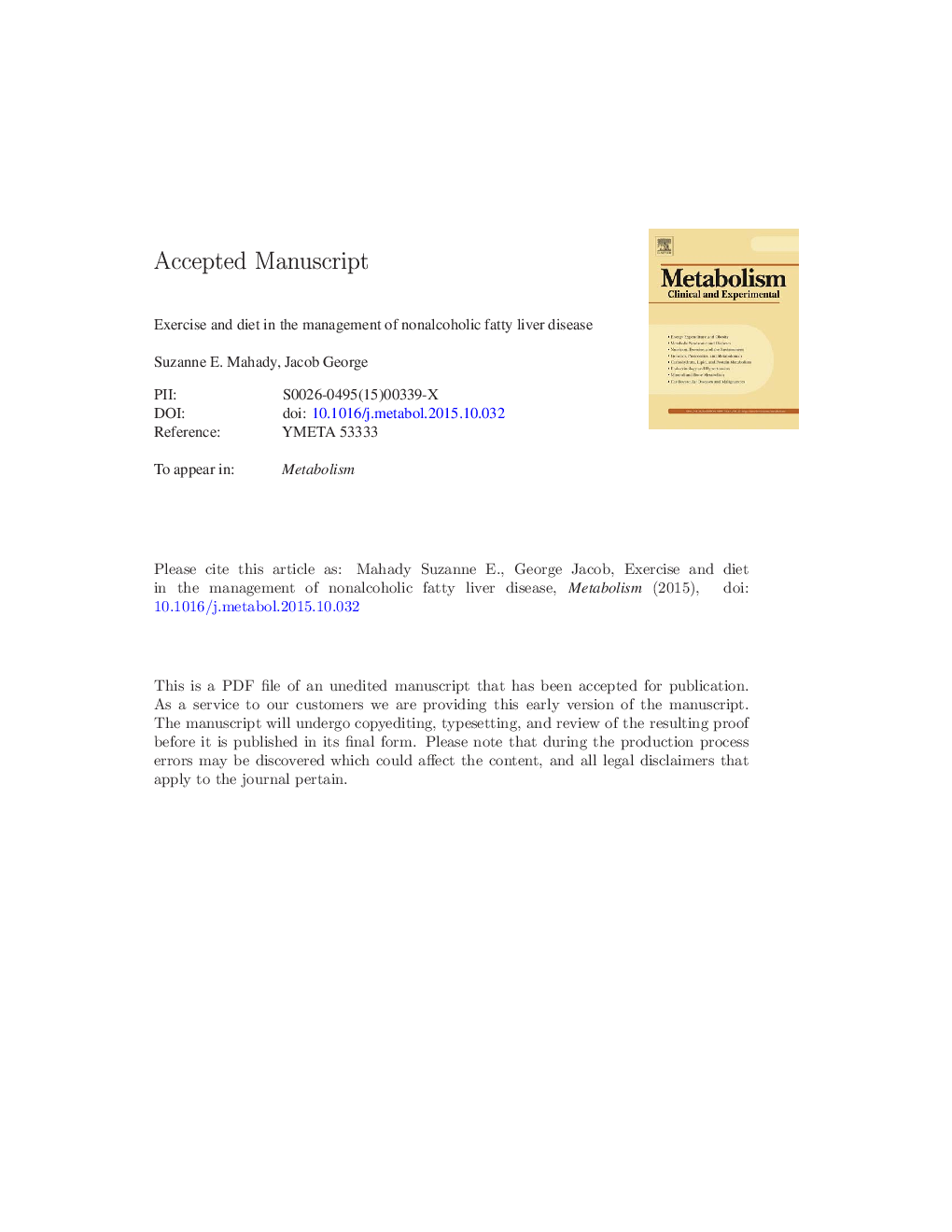| Article ID | Journal | Published Year | Pages | File Type |
|---|---|---|---|---|
| 5903002 | Metabolism | 2016 | 25 Pages |
Abstract
Nonalcoholic fatty liver disease (NAFLD) is the most prevalent chronic liver condition worldwide, and is projected to become the leading cause for liver transplantation in the United States as early as 2020. The mainstay of treatment remains lifestyle modification with diet and exercise recommendations, as although some pharmacological treatments such as glitazones and Vitamin E have shown benefit, there are concerns regarding long term safety. The evidence base for dietary interventions in NAFLD such as the Mediterranean diet, omega-3 polyunsaturated fatty acids and coffee is mainly derived from observational data with questionable validity. Where trials exist, they have shown benefit for surrogate outcomes such as hepatic steatosis and insulin resistance, but no trials have been conducted with salient clinical outcomes such as reduction in progression to chronic liver disease. Benefit in surrogate outcomes has also been seen for aerobic, anaerobic and combined modality exercise but it remains unclear if one type is superior. Furthermore, a reduction in sedentary time appears equally important. To provide a sound evidence base for lifestyle recommendations to people with NAFLD, longer duration trials of standardized dietary or exercise interventions, and testing various doses, types and with liver related outcomes, are essential.
Keywords
Related Topics
Life Sciences
Biochemistry, Genetics and Molecular Biology
Endocrinology
Authors
Suzanne E. Mahady, Jacob George,
